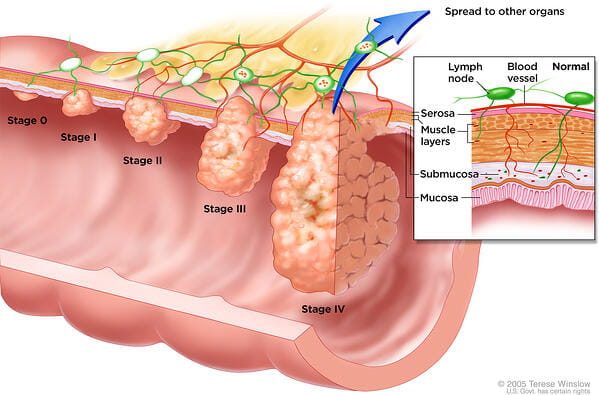how accurate is cologuard
Explore how accurate is cologuard, a non-invasive colorectal cancer screening test. Learn how it compares to traditional methods, its false positive and negative rates, and factors affecting its accuracy.

Colorectal cancer is a rising concern worldwide, and early detection is crucial for effective treatment. One of the latest advancements in this area is Cologuard, a non-invasive screening test. But how accurate is this new method? In this article, we’ll delve into the overall accuracy of Cologuard for detecting colorectal cancer (CRC), compare it to other screening tests, and discuss its pros and cons.
TABLE OF CONTENT
What is Cologuard?
Cologuard is a non-invasive stool-based DNA test designed to detect colorectal cancer and precancerous polyps. The test analyzes both the DNA and blood in your stool to identify abnormal cells that could indicate cancer or precancerous conditions. Because it’s non-invasive, it can be done in the comfort of your home, making it a convenient option for many.
How is Cologuard Different from Traditional Methods?
Traditional colorectal cancer screening methods like colonoscopy require preparation and a hospital visit. While they are effective, they can be inconvenient and uncomfortable. Cologuard offers a more user-friendly alternative, but how does it stack up in terms of accuracy?
What is the Overall Accuracy of Cologuard for Detecting Colorectal Cancer (CRC)?
According to studies, Cologuard has an overall sensitivity of about 92% for detecting colorectal cancer. This means that it correctly identifies positive cases 92% of the time. While this is a high rate, it’s essential to understand that no test is 100% accurate.
How Accurate is Cologuard for Detecting Early-Stage CRC?
When it comes to early-stage CRC, Cologuard’s sensitivity drops slightly. Studies indicate that its accuracy for detecting stage I and stage II cancers is around 87%. Early detection is crucial for effective treatment, so this is an important factor to consider.

How Accurate is Cologuard for Detecting Advanced-Stage CRC?
For advanced-stage CRC (stages III and IV), Cologuard shows a sensitivity of about 94%. This higher accuracy for later stages is encouraging but also underscores the importance of regular screening for early detection.
How Accurate is Cologuard for Detecting Precancerous Polyps?
Cologuard’s sensitivity for detecting precancerous polyps is around 42%. While this is significantly lower than its accuracy for detecting cancer, it’s still a valuable tool for early intervention.
What are the Factors that Can Affect the Accuracy of Cologuard?
Several factors can affect Cologuard’s accuracy:
Diet: Certain foods can interfere with the test results.
Medication: Some medications may affect the DNA in your stool.
Timing: The stage of the cancer can impact the test’s sensitivity.
For specific guidance, you must speak with your healthcare provider.
How Does the Accuracy of Cologuard Compare to Other CRC Screening Tests?
Compared to a colonoscopy, which is considered the gold standard, Cologuard is less sensitive. A colonoscopy has a sensitivity rate of about 95% for detecting colorectal cancer and is more effective at identifying precancerous polyps. However, Cologuard offers the advantage of being non-invasive and convenient.

What is the False Positive Rate of Cologuard?
The false positive rate of Cologuard is about 13%. This means that the test may indicate the presence of cancer when there is none, leading to unnecessary stress and additional testing.
What is the False Negative Rate of Cologuard?
The false negative rate for Cologuard is relatively low, at around 8%. A false negative means that the test could miss a cancer that is actually present, delaying treatment and reducing the chances of a successful outcome.
What are the Risks and Benefits of Cologuard?
Risks:
- False positives may result in more testing and needless worry.
- False negative results could create an illusion of security.
Benefits:
- Non-invasive and convenient
- No need for bowel preparation
- Suitable for people who can’t undergo a colonoscopy
Who Should Consider Using Cologuard for CRC Screening?
Cologuard is recommended for adults 45 years and older who are at average risk for colorectal cancer. It’s not suitable for those with a high risk, such as a family history of colorectal cancer or a personal history of polyps.

How Often Should I Get Tested with Cologuard?
Cologuard testing is advised to be done every three years. However, consult your healthcare provider for personalized recommendations.
What Should I Do if My Cologuard Test is Positive?
A positive result means that abnormal DNA or blood was detected. It’s not a diagnosis of cancer but an indication for further testing. Consult your healthcare provider for the next steps, which will likely include a colonoscopy for confirmation.
What Should I Do if My Cologuard Test is Negative?
A negative result suggests that no abnormal DNA or blood was detected. However, it’s not a guarantee that you’re cancer-free. Continue regular screenings as advised by your healthcare provider.
Is Cologuard Covered by Insurance?
Many insurance plans cover Cologuard, but coverage can vary. Medicare also covers the test once every three years for eligible individuals. Always check with your insurance provider for details.

How Much Does Cologuard Cost?
Cologuard costs vary based on your insurance. Without insurance, the test can cost around $600-$800. Financial assistance programs are available for those who qualify.
Where Can I Get a Cologuard Test?
Cologuard tests can be ordered by healthcare providers. The kit is then mailed to your home, where you can take the sample and mail it back in the prepaid package.
How Do I Prepare for a Cologuard Test?
No special preparation is needed for a Cologuard test. Unlike a colonoscopy, there’s no need for bowel preparation or fasting.
What are the Side Effects of Cologuard?
There are no known side effects of Cologuard as it’s a non-invasive test that involves only a stool sample.

What are the Limitations of Cologuard?
- Not as accurate as a colonoscopy
- Not suitable for high-risk individuals
- May produce false positives or negatives
What are the Future Directions for Cologuard Research?
Ongoing research aims to improve the accuracy of Cologuard and expand its capabilities to detect other gastrointestinal cancers. Clinical trials are also exploring the effectiveness of combining Cologuard with other screening methods.
FAQ’s
- Is Cologuard a replacement for a colonoscopy?
- No, it’s an alternative for those who can’t or won’t undergo a colonoscopy.
- How long does it take to get Cologuard results?
- Typically, results are available within 1-2 weeks.
- Is Cologuard safe for pregnant women?
- Consult your healthcare provider for personalized advice.
Conclusion
Cologuard offers a convenient and non-invasive option for colorectal cancer screening. While it has its limitations, it serves as a valuable tool for early detection, especially for those who can’t undergo traditional methods. As with any medical test, consult your healthcare provider for personalized recommendations.
I hope you find this article informative and helpful! Feel free to use it as you see fit.
